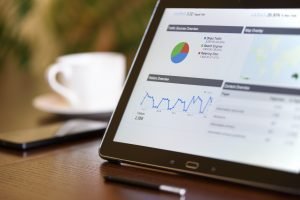Privacy in the USA. “Okay, hold on, this one might be contentious,” but when it comes to personal and digital privacy in the USA, we’re dancing on a tightrope. With one foot planted in the need for security and the other in the fundamental right to privacy, finding balance is as crucial as it is complex. In the digital age, this balance is constantly tested by evolving technologies and legislative actions. Let’s dive deeper into the legal frameworks that both protect and, at times, challenge our right to privacy.
Privacy in the USA: Guardians of Privacy
The Fourth Amendment: The Constitutional Shield
The Fourth Amendment serves as the bedrock of privacy in the USA, offering robust protection against unreasonable government searches and seizures. It establishes a legal expectation of privacy, ensuring that citizens’ personal lives aren’t open books for government scrutiny without just cause. Despite its strength, the digital era poses new challenges to its applicability, leading to debates on digital surveillance and data collection practices.
The Electronic Communications Privacy Act (ECPA), 1986: Digital Age Dilemma
Introduced when the internet was in its infancy, the ECPA sought to extend restrictions on wiretapping to include electronic data. However, critics argue that it hasn’t kept pace with technological advancements. For instance, the Act struggles to adequately address modern concerns like email privacy, cloud storage, and the vast data collection capabilities of today’s internet giants.
The Children’s Online Privacy Protection Act (COPPA), 1998: Safeguarding Our Youngest
COPPA plays a crucial role in protecting children under 13 from the prying eyes of the internet. By regulating how websites and online services collect information from kids, it empowers parents and guardians with control over their children’s digital footprint, ensuring that the innocence of youth isn’t exploited for commercial gain.
The Health Insurance Portability and Accountability Act (HIPAA), 1996: Health Information Privacy
HIPAA is pivotal in protecting personal health information, setting standards for its disclosure without patient consent. It ensures that sensitive health data isn’t casually shared or accessible, safeguarding individuals’ privacy even in the sprawling ecosystem of healthcare and insurance providers.
The General Data Protection Regulation (GDPR): A Global Influence
While the GDPR is an EU regulation, its reach affects American companies dealing with EU citizens’ data. It has pushed for greater transparency and given individuals more control over their personal information, setting a global standard for data protection that many in the US advocate for domestically.
Laws That May Erode Privacy
The USA PATRIOT Act, 2001: A Controversial Countermeasure
Enacted in the wake of 9/11, the PATRIOT Act aimed to strengthen national security. However, its broad surveillance powers have sparked debates about the erosion of privacy in the USA, allowing for the collection of “tangible things” related to terrorism investigations, which can include a wide range of personal information.
The Foreign Intelligence Surveillance Act (FISA) and its Amendments: Surveillance Without Borders
FISA permits surveillance of foreign spies and entities, but its amendments, particularly the FISA Amendments Act of 2008, have raised concerns over warrantless surveillance of Americans. These provisions have been criticized for creating backdoors into Americans’ private communications, blurring the lines between foreign intelligence gathering and domestic spying.
The Cloud Act, 2018: Global Data within Reach
The Cloud Act enables US law enforcement to access data stored overseas by American tech companies, aiming to streamline cross-border data access. However, this raises privacy concerns, particularly regarding the potential for surveillance without clear oversight and the implications for international privacy laws.
Striking a Balance: The Ongoing Debate
Balancing privacy in the USA with security and commercial interests continues to be a contentious issue. The rapid pace of technological innovation often outstrips the slow churn of legislative action, leaving gaps in privacy protection that can be exploited. Advocacy for stronger privacy protections, transparency in data collection and usage, and the establishment of clear, enforceable boundaries is critical in maintaining this balance.
Enhancing Personal Privacy: Practical Steps
- Utilise VPNs and Encrypted Messaging: Protecting your online activity and communications from prying eyes is essential in the digital age.
- Understand Privacy Policies: Knowing how your data is collected, used, and shared by platforms can inform your decisions and protect your privacy in the USA.
- Maintain Privacy Settings: Regularly updating your settings on social platforms can help control your digital footprint.
In Conclusion
Navigating the complex landscape of personal and digital privacy in the USA requires vigilance and advocacy. While laws exist to protect privacy, the digital age continually tests these protections. Staying informed, advocating for robust privacy laws, and taking personal steps to safeguard privacy are key to maintaining the delicate balance between personal freedoms and societal needs.
Further Reading and Resources
- American Civil Liberties Union (ACLU) on Privacy: https://www.aclu.org/issues/privacy-technology
- Electronic Frontier Foundation (EFF) on Digital Privacy: https://www.eff.org/issues/privacy














